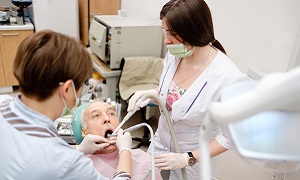Best Doctors in India for Root Canal Treatment
Best Hospitals in India for Root Canal Treatment
- City: Bengaluru, India
Hospital Highlights:
- Fortis Hospital Bannerghatta, Bengaluru was established in 2006.
- The hospital is a 276 bedded multi-specialty tertiary care facility.
- The hospital specializes in cutting-edge medical technology and dedicated patient care services.
- The hospital is equipped with state-of-the-art technologies like trans-radial angioplasty, trans-abdominal cardiac surgery, and computerized TKR navigation surgery.
- The hospital provides specialty medical services in cardiology, cardiac surgery, orthopedics, neurology, neuro-surgery, GI, and Minimal Access Surgery (MAS).
- City: Chennai, India
Hospital Highlights:
- Fortis Malar was established in 1992 and was formerly known as Malar Hospital.
- The hospital specializes in cutting-edge medical technology and dedicated patient care services.
- The hospital is multi-specialty, tertiary care facility with 180 beds.
- The hospital offers comprehensive medical care in specialties such as cardiology, cardio-thoracic surgery, neurology, neurosurgery, orthopedics, nephrology, gynecology, gastroenterology, urology, pediatrics, and diabetes.
- City: New Delhi, India
Hospital Highlights:
- Established in 1996, Pushpawati Singhania Research Institute is one of the top hospitals in the NCR region, as well as one of the top facilities in India for gastroenterology. The hospital is one of South Asia’s first institutes in medical and surgical treatment for diseases related to digestion.
- The hospital is equipped with state-of-the art facilities coupled with the latest equipment as well as renowned consultants from various parts of India as well as other parts of the world.
- City: New Delhi, India
Hospital Highlights:
- State-of-the-art technology and devoted healthcare professionals have been brought together under one roof at Venkateshwar Hospital to provide genuine medical care. The hospital’s professionals work together as a team to deliver the best possible treatment to their patients, using the most sophisticated equipment and information technology.
- Venkateshwar Hospital’s mission is to attain global excellence in healthcare by employing evidence-based, ethical clinical practices and cutting-edge technology by a team of highly skilled experts.
- City: New Delhi, India
Hospital Highlights:
- Sir Ganga Ram Hospital, New Delhi is known to provide the latest medical procedures with the latest technology in all of its units.
- The hospital has a team of reputed doctors, nurses, and healthcare professionals that ensure that patients receive quality care at affordable costs.
- Staffed with a team of highly qualified doctors, dedicated nurses, and paramedical and non-medical staff, the hospital aims to lead in healthcare delivery, medical education, training, and research.
- As per the vision of the founder, the hospital also provides free treatment to the economically weaker sections of society.
- Sir Ganga Ram Hospital also provides training to young doctors under the Diplomate in National Board(DNB) program. The DNB program at the hospital was started in 1984 and it is known for currently running the maximum number of DNB specialties in the country. It also has the distinction of having the first bone bank in India.
- City: Kerala, India
Hospital Highlights:
- Established in 2019, Apollo Adlux Hospital is the first Apollo Hospital in Kerala and the 73rd hospital owned by Apollo Group in India. With the state’s most advanced, comprehensive healthcare infrastructure and cutting-edge technologies, Apollo Adlux Hospital stands as an example of medical excellence in Kerala.
- With over 34 multi-specialty departments, the hospital believes in providing the best quality treatment to its patients at affordable rates, ensuring comfort at their difficult times.
- The 300-bed hospital is managed by a team of highly qualified and experienced experts who delivers exceptional hospitality to their patients and treats them with great compassion.
- With its affiliation with the Apollo Hospitals Group, the hospital aims in providing patients with top-notch healthcare services while also serving communities in Kerala.
- The hospital has good railway and road connections, and is conveniently close to Cochin International Airport.
- City: Gurugram, India
Hospital Highlights:
- Situated near DLF Cyber City, Gurugram, Narayana Superspecialty Hospital is one of the top medical facilities in the Delhi NCR region, catering to the needs of the people. Known for its commitment to quality medical care and patient service, the hospital is a state-of-the-art facility with planned and well-equipped sections, which includes a spacious OPD area as well as comfortable patient rooms.
- It is the closest super-specialty hospital from Indira Gandhi International Airport towards Gurugram, and also the nearest super specialty hospital from DLF Cyber City. It is also close to major residential areas in Gurugram.
- It is part of the renowned Narayana Health Group. Established in 2000, by Dr. Devi Shetty, a renowned cardiac surgeon, it has grown to be one fo India’s leading healthcare groups.
- City: Noida, India
Hospital Highlights:
- Fortis Hospital, Noida, stands as one of the oldest and most trusted healthcare institutions in the region, setting a benchmark for comprehensive medical care.
- As the second mega hub hospital in the Fortis Healthcare Group, Fortis Hospital, Noida, upholds a legacy of trust among more than 1.2 million patients. By integrating top-tier professionals with cutting-edge technology, the hospital delivers superior treatment across various medical disciplines.
- Specializing in advanced Neurosciences, Orthopedics, Kidney and Liver Transplant Programmes, Fortis Hospital, Noida has successfully performed over 1,500 transplants, solidifying its reputation as a leader in specialized medical interventions.
Root Canal Treatment
Root canal, a treatment that is used for repairing and saving an infected tooth which has been badly damaged, rather than removing it. `Root canal’ is a term that comes from cleaning the canals inside the root of a tooth. Few decades ago, root canal treatments were painful procedures. But with advances in dentistry as well as local anesthetics, today people who go through this procedure, experience very little or no pain. There are however, alternatives to root canal treatment, which include extracting the damaged tooth, replacing it with a dental implant, bridge or a removal partial denture. A root canal is performed by a general dentist or an endodontist in the majority of cases, while the patient is under local anesthesia.
Why it is performed
A root canal is performed when the soft core in the tooth called the pulp, gets inflamed, injured or infected. The pulp has nerves, blood vessels as well as connective tissue. When a tooth gets cracked or has a deep cavity, bacteria can enter the pulp. If left untreated, bacteria and decaying material can lead to a serious infection or a tooth abscess, which will lead to pulp death or bone loss and even loss of the tooth itself. Symptoms include swelling around your face or neck, a hole in the tooth, gum swelling, toothache as well as temperature sensitivity. Your dentist will examine your painful tooth and the diagnosis will be confirmed through X-Rays.
Some of the causes that lead to the pulp getting damaged include:
- Untreated cavity leading to deep decay
- Dental procedures performed multiple times on the same tooth
- An injury to the tooth
- A crack or a chip in the tooth
Procedure
Step 1
A root canal is performed generally by a dentist. The dentist will first use numbing medication on your gum near the affected tooth and once it takes effect, he will inject a local anesthetic into the gums. Though this might cause a sharp pinch or a burning sensation, this won’t take much time to pass.
Step 2
After your tooth becomes numb, your dentist will create a small opening at the top of the tooth. After the infected or damaged pulp is exposed, the specialist will remove it using special tools, which are known as files. They will also be extra careful to clean out the pathways or canals in your tooth.
Step 3
Once the pulp is removed, the dentist can coat the area with a topical antibiotic for ensuring that the infection is gone and to prevent any further reinfection. After the canals are cleaned as well as disinfected, your dentist will seal the tooth with a sealer paste and rubber-like material called gutta-percha. They might prescribe oral antibiotics as well.
Step 4
The procedure will end after your dentist fills the small opening at the top of the tooth with a temporary material. This will prevent your saliva from causing damage to the canals.
Follow up
When the numbing medication wears off, your tooth and gums might feel sore. You might experience swelling in the gums as well. Many dentists usually treat these symptoms using over-the-counter pain medications, such as acetaminophen or ibuprofen. If your pain becomes extreme or if it lasts for multiple days, then you need to contact your dentist
You might be able to resume your normal just the day after the procedure is performed. Try not to chew with the damaged tooth, until it has been filled permanently or a crown isn’t placed over the top.
After some days, you can see your dentist again and they’ll take X-rays and make sure that the infection is no more. If you prefer, you can also let your dentist place a permanent crown on your tooth. Crowns are artificial teeth made of porcelain or gold. Be noted that it might take you weeks to get used to how your tooth feels after your procedure.
Risks
Though a root canal is performed to save your tooth, sometimes however, the damage is too deep in order to withdraw the procedure. This can eventually result in you losing your tooth.
There is another risk, which involves developing an abscess at the root of your tooth. This can happen when some of the infected materials remain behind or if the antibiotics are ineffective.
If you’re unsure regarding a root canal, talk to your dentist regarding an extraction. This will involve placing a partial denture, implant or bridge in the place of the damaged tooth.












